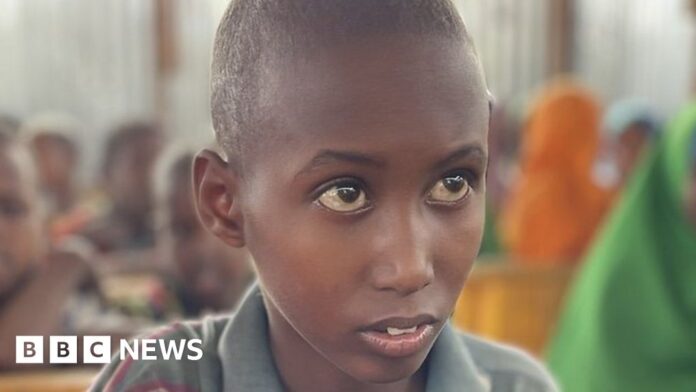Dahir’s brother died of hunger. Now two of his sisters are fighting sickness and malnutrition. The BBC’s Andrew Harding returns to Baidoa to revisit a family forced to flee Somalia’s worst drought in 40 years, as authorities urge the international community to recognise the crisis as a famine.
Warning: This article contains images some readers may find distressing
Eleven-year-old Dahir weaves his way between a growing cluster of homemade huts on the edge of Baidoa, heading to a tin-roofed school building near the main road. He is wearing his only shirt and trousers, and clutching his one other possession – a new schoolbook.
The school’s sole teacher, Abdullah Ahmed, 29, writes English days of the week on the blackboard, as Dahir, and perhaps 50 classmates, recite: “Saturday, Sunday, Monday…”.
For a few minutes, a burst of interest energises the children, but soon the yawns and coughs resume – signs of the hunger and sickness that echo, like a grim soundtrack, across the plateau of rocky ground around Baidoa that has become home in recent months for hundreds of thousands of civilians, displaced by the worst drought to hit Somalia for 40 years.


